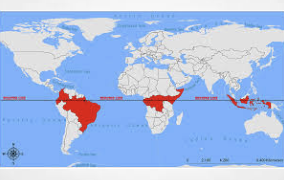This is what they have said
The FDA’s rejection of Lykos’ NDA reveals a deeper communal quandary, especially in light of the agency’s inability to assess a human-based intervention combined with a chemical drug. Are we really ready to incorporate psychedelics into regular old American life?
By: The Psychedelic Bar Association Board of Directors
The recent rejection of the New Drug Application for MDMA-Assisted Therapy by the FDA highlights a disappointing yet unsurprising resistance within the federal government to embrace new scientifically-backed treatments that can address our country’s growing mental health crisis. The FDA’s decision mirrors the historical struggles seen within cannabis legalization efforts, where federal agencies have maintained a similar disregard for both science and public opinion. While the FDA’s decision may be seen as a setback to a decades-long effort in drug policy reform, we see that the decision is underscoring the need for continued advocacy and reflection within the psychedelic community on how best to navigate and challenge antiquated regulatory systems. Empowered States like Oregon and Colorado have already begun to pave the way for safe, legal access to psychedelics, demonstrating that grassroots and state-level initiatives may be more effective in responding to urgent health care needs.
While there was hope that the FDA would approve the Lykos application, it was not surprising that the agency chose to respond with a Complete Response Letter, a regulatory step that effectively delays the decision-making process by requesting more information on safety and efficacy. This decision highlights the FDA’s expectation that psychedelic medicine, particularly MDMA-assisted therapy, should fit squarely within the traditional Western medical model, raising questions about whether this model is equipped to safely integrate these dynamic therapies. The FDA’s choice also reflects an apparent confidence in its own role as a gatekeeper for psychedelic medicine in the US, a role that some advocates would argue is not in the best interest of public health given the agency’s current approach. This outcome has prompted significant reflection within the field, emphasizing the importance of addressing the unique ethical and procedural challenges necessary for the safe and successful integration of psychedelic therapies.
The Psychedelic Bar Association remains committed to fostering a culture that supports the intentional and responsible integration of psychedelics into society. The FDA’s decision should not be seen as the final word but rather as a call to action for deeper reflection and renewed efforts to ensure that our legal, ethical, and social frameworks are prepared for the mainstreaming of these powerful therapies. We will continue to support our members and clients in navigating this complex landscape, encouraging proactive solutions and collaboration to address the challenges and opportunities that lie ahead.
Members of this bar association are often no strangers to the weird, wonderful, and sometimes terrifying experiences that psychedelics can bring. We’re committed to the incorporation of psychedelic practice in everyday life—for the relief of suffering and the expansion of consciousness (or any purpose one might use these plants and compounds for). Many of us have devoted our lives to it. We’re not giving up. We’re not discouraged. Instead, we’re energized. We are still going about our work to bring this future culture about—in all of the domains we can operate.
The question remains, “What needs to be done to make these practices, plants, and compounds safe, culturally respected, and legal?” Our work is not done.


















